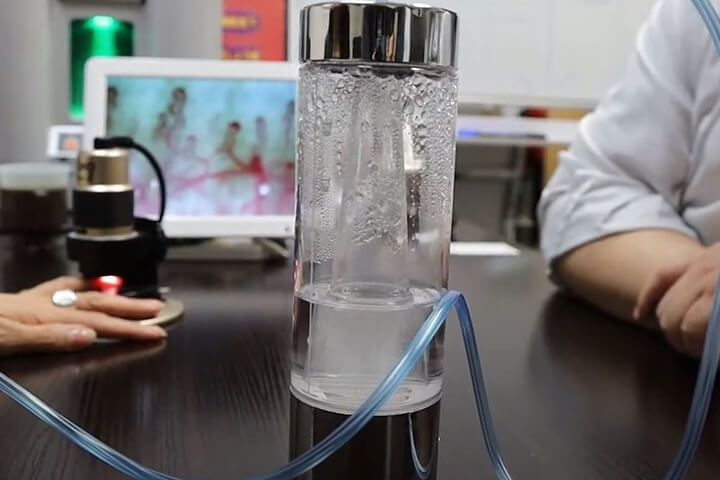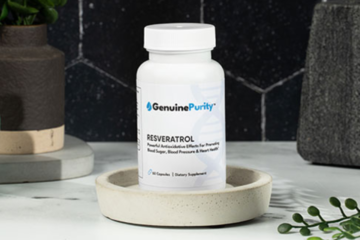Hydrogen water therapy has become popular as a new way to improve health and wellness in recent years. It is said to be able to help with a wide range of health problems and improve general health. This therapy involves consuming water infused with molecular hydrogen (H2), which is claimed to possess powerful antioxidant properties and numerous health benefits. While research is still in its early stages, the growing body of evidence suggests that hydrogen water therapy may hold promise in supporting health and healing. In this article, we delve into the science behind hydrogen water therapy and explore its potential applications in healthcare.
What Is Hydrogen Water Therapy?
Hydrogen water therapy involves enriching water with molecular hydrogen gas with the help of portable hydrogen generator. This can be achieved through various methods, such as electrolysis, where water is exposed to an electric current to produce hydrogen gas, or by dissolving hydrogen gas into water under high pressure. The resulting hydrogen-rich water is then consumed orally, with proponents claiming that the hydrogen molecules act as powerful antioxidants in the body.
Antioxidant Properties
One of the main ideas behind why hydrogen water therapy might be good for your health is that it is an antioxidant. It is thought that molecular hydrogen can specifically remove harmful reactive oxygen species (ROS) from the body, lowering oxidative stress and inflammation. A lot of health problems, like heart disease and brain diseases, are linked to oxidative stress. It’s also a part of getting older. By reducing ROS, hydrogen water may help protect cells and tissues from damage, which is good for your health and makes you live longer.
Health Benefits
Advocates of hydrogen water therapy suggest that regular consumption of hydrogen-rich water may confer a wide range of health benefits. Some of the potential therapeutic effects attributed to hydrogen water include:
Improved Athletic Performance: Several studies suggest that hydrogen water may enhance exercise performance and recovery by reducing oxidative stress and muscle fatigue.
Anti-inflammatory Effects: It has been shown that hydrogen water can help people with inflammatory diseases like arthritis and inflammatory bowel disease.
Neuroprotective Effects: Early study suggests that hydrogen water therapy may help protect neurons, which could be helpful for people with neurological diseases like Parkinson’s disease and Alzheimer’s disease.
Cardioprotective Effects: Hydrogen water has been shown to protect against heart damage and improve cardiovascular function in animal studies, suggesting potential benefits for heart health.
Anti-aging Properties: Hydrogen water may help fight the signs of aging by lowering reactive stress and making cells healthier.
Clinical Evidence
While much of the evidence supporting hydrogen water therapy is based on animal studies and in vitro research, there is a growing body of clinical evidence suggesting its efficacy in humans. Clinical studies that looked into the healing potential of hydrogen water showed positive results in a number of health problems, such as metabolic syndrome, diabetes, and gastrointestinal disorders. However, further research is needed to elucidate the optimal dosing, duration, and efficacy of hydrogen water therapy in different clinical contexts.
Safety Considerations
Hydrogen water therapy is generally considered safe when consumed in moderation. Molecular hydrogen is non-toxic and readily exhaled from the body, posing a minimal risk of adverse effects. People who have certain medical problems or who are taking medicine should talk to a doctor or nurse before adding hydrogen water therapy to their routine. Additionally, the quality and purity of hydrogen water products should be ensured to avoid potential contamination or adverse reactions.
Future Directions
As research into hydrogen water therapy continues to evolve, there is growing interest in exploring its therapeutic potential across a broader spectrum of health conditions. Clinical trials investigating the efficacy of hydrogen water in cancer treatment, autoimmune disorders, and metabolic diseases are currently underway, with preliminary results showing promise. Additionally, advancements in hydrogen delivery methods and technologies may further enhance the accessibility and effectiveness of hydrogen water therapy in clinical settings.
Conclusion
Hydrogen water therapy represents a promising avenue for promoting health and wellness, with its antioxidant properties and potential therapeutic effects garnering increasing attention from researchers and healthcare practitioners alike. While further research is needed to fully elucidate its mechanisms of action and clinical efficacy, the growing body of evidence suggests that hydrogen water may have a range of health benefits, from reducing oxidative stress and inflammation to supporting overall vitality and longevity. As research into hydrogen water treatment continues to move forward, it could change the way people stay healthy and deal with diseases in the years to come.
Keep an eye for more news & updates on Gossips!




